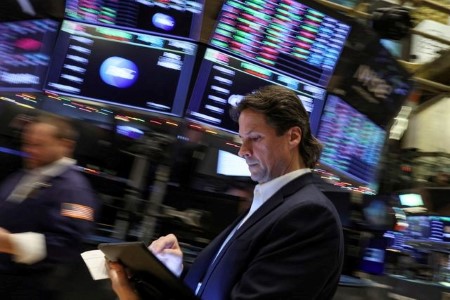




January Economic Update: Growth slows, prices rise
 DOWNLOAD
DOWNLOAD

Inflation Update: Up, up, and away?
 DOWNLOAD
DOWNLOAD

Quarterly Economic Growth Release: Growth takes on a slower pace
 DOWNLOAD
DOWNLOAD


China stocks retreat on concerns of surging COVID cases

SHANGHAI, Dec 12 (Reuters) – China stocks retreated on Monday as investors worried that rising COVID-19 cases might disrupt consumption and manufacturing, while uncertainty over overseas monetary policy also kept sentiment subdued.
China’s blue-chip CSI 300 Index closed down 1.1%, and the Shanghai Composite Index lost 0.9%.
Hong Kong’s Hang Seng Index dropped 2.2% while the Hang Seng China Enterprises Index declined 3%.
Other Asian shares also fell, as markets awaited a flurry of rate decisions this week from the US Federal Reserve, the European Central Bank and others.
After China made a dramatic pivot toward economic reopening last week, there were rising concerns that infections could spike and cause further disruptions.
Meanwhile, Chinese people queued outside fever clinics at some cities’ hospitals for COVID-19 checks, a new sign of the rapid spread of symptoms.
“Short-term pain in China’s reopening process might be inevitable, especially on the consumer side, but the subsequent recovery will be earlier and stronger,” said Robin Xing, chief China economist at Morgan Stanley.
Property developers and internet companies led declines in China’s market, as investors booked profits from previous bets on China’s policies to support the real estate sector and relax COVID restrictions.
Real estate developers’ shares listed in mainland China and tech giants traded in Hong Kong plunged more than 4% each on Monday. Both sectors rose more than 30% in November.
Country Garden Services Holdings Company Limited tumbled 17% to lead a decline in Hong Kong-listed mainland property firms, after it said chairman Yang Huiyan had disposed shares.
However, investors snapped up shares of Chinese drugmakers, mask producers, antigen test companies and funeral service providers, amid fears of soaring mass infections.
Shijiazhuang Yiling Pharmaceutical Co Ltd., seller of a wildly popular anti-cold medicine, rose 1.7% on the day, sending their quarterly gain to 138%.
Meanwhile, antigen testing firm Wuhan Easy Diagnosis Biomedicine jumped 10% by the daily limit.
Investors are also eyeing the upcoming Central Economic Work Conference this month, which is expected to provide more clues on China’s economic policy next year.
(Reporting by Shanghai Newsroom; Editing by Crispian Balmer)
This article originally appeared on reuters.com





 By Reuters
By Reuters